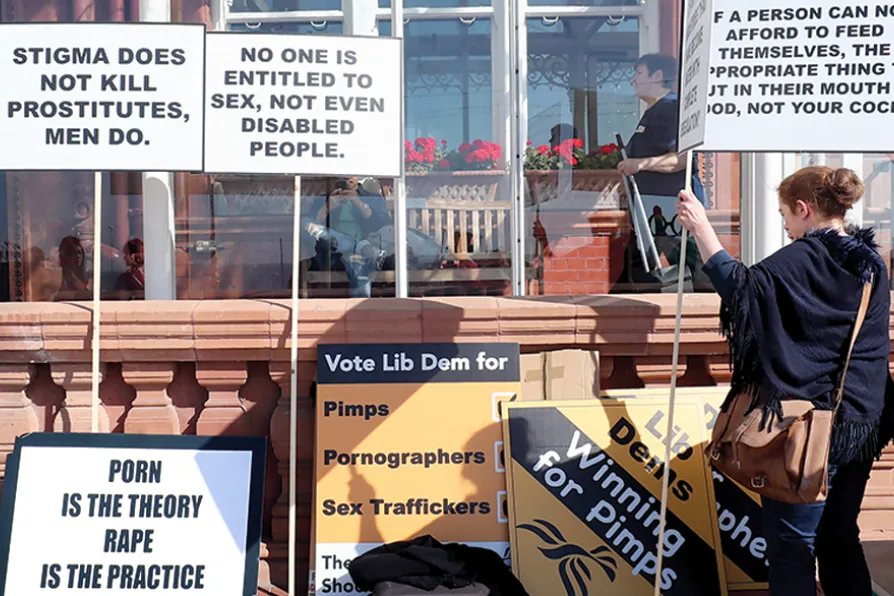Hundreds protested against the US-Israel attacks on Iran in Parliament Square on Saturday, fearing a wider conflagration and horrified by the targeting of young schoolchildren, writes LINDA PENTZ GUNTER
Mountains of research show that hardcore material harms children, yet there are still no simple measures in place

 PULLING NO PUNCHES: Activists from the feminist campaign group Not Buying It at the Liberal Democrat Conference in Brighton in 2018
PULLING NO PUNCHES: Activists from the feminist campaign group Not Buying It at the Liberal Democrat Conference in Brighton in 2018
WHEN I was a teenager, the only generally available pornography or erotica was surreptitiously traded postcards of coyly posed, naked women or under-the-counter magazines with innocuous titles like Health and Beauty. Not exactly uplifting visual material, but hardly damaging.
Today, we are living in a world where access to extremist material of all kinds of sexual depravity is readily available on the internet. Pornography has taken on a new and frightening significance. It is also a perfect paradigm of capitalism in that it exploits the poorest and most vulnerable in our societies, engenders huge profits and cultivates urges and desires no-one knew they had.
As a recent article by Harriet Grant in the Guardian showed, many of the men convicted of online child abuse say that they began by logging on to one of the many “mainstream” porn sites, but were, over time, taken to increasingly more abhorrent material, involving violence and child abuse by the inbuilt algorithms and without their conscious desire for such material.

As Ash Regan’s Unbuyable Bill sparks debate in Scotland, the real issue remains unaddressed: a digitalised sex industry and a neoliberal economy that repackages exploitation as empowerment while leaving women’s material conditions unchanged, argues LAUREN HARPER

AMANDA J QUICK warns about the ever-expanding influence of the sex industry – and the harm it unleashes on both the women involved and society collectively, especially the young

LYNNE WALSH reports from the Women’s Declaration International conference on feminist struggles from Britain to the Far East











